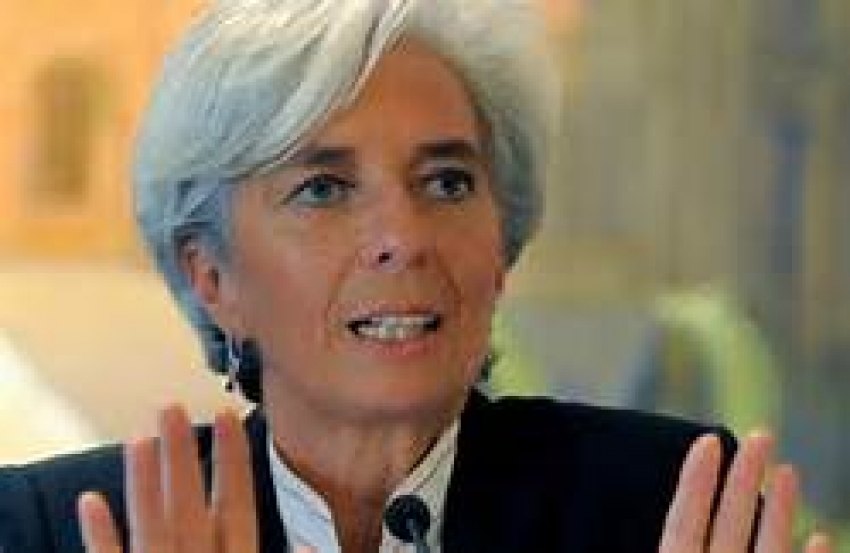BRUSSELS — The European Council on Tuesday officially nominated Christine Lagarde, managing director of the International Monetary Fund, to become the next president of the European Central Bank.Lagarde would succeed Mario Draghi. Lagarde has led the IMF since 2011.
“I am honored to have been nominated for the Presidency of the European Central Bank,” Lagarde said in a statement. “In light of this, and in consultation with the Ethics Committee of the IMF Executive Board, I have decided to temporarily relinquish my responsibilities as Managing Director of the IMF during the nomination period.”
Lagarde’s nomination now passes to a vote at the broader European Parliament as well as between the euro zone finance ministers. However, this is more of a symbolical step as the heads of state have the final say on the ECB presidency.
European Council President Donald Tusk, who chairs the EU summits between the 28 heads of state, told CNBC that Lagarde’s past as a finance minister does not put at risk the independence of the ECB. The central bank is meant to be totally independent from political interference.
Dutch Prime Minister Mark Rutte told CNBC in Brussels that Lagarde is a “tough lady.”
WATCH NOW
VIDEO00:43
The response to Christine Lagarde’s nomination to be ECB president
“I know Christine Lagarde as the boss of the IMF, I know her as a tough lady, as somebody who knows what she wants, who is very clear on giving directions, when you come to her to get a loan, (she is) very tough on conditions, so I wouldn’t like to be the European country who needs to go to the ECB asking for favors.”
If confirmed, Lagarde would take over a central bank struggling to jolt economic growth in Europe. Last month, Draghi said the ECB would announce further stimulus if the region’s economic situation further deteriorated. IHS Markit said Monday that growth in the European manufacturing sector deteriorated for a fifth straight month in June.
“Lagarde would be expected to lean broadly dovish on monetary policy while pressing fiscal authorities to play a more active role in promoting eurozone growth,” Krishna Guha, head of global policy and central bank strategy at Evercore ISI, said in a note. “Specifically we think she would back what we expect will be one last big dovish play from Draghi in September: an easing package that includes both a 10-15 bp rate cut and a new QE program at around €30bn a month of purchases.”
The council also nominated Ursula von der Leyen, Germany’s defense minister, for the European Commission presidency. Belgium Prime Minister Charles Michel was also nominated for the European Council president job.
The choices were particularly difficult this year given the fragmented outcome of the European parliamentary elections in late May, and the variety of top jobs that are up for grabs before the end of the year.
European citizens voted mostly for pro-EU parties in the May election. However, the center-right European People’s Party, which had been a powerful force driving EU politics over the last four decades, lost quite a lot of support from the previous election. As a result, there was a stronger showing for liberal lawmakers, euroskeptics and for the Green Party.
The 28 heads of state had to consider the outcome of these elections in the appointment of the next European Commission president — who will take power on Nov. 1 from President Jean-Claude Juncker. As well as the political affiliation of the next commission president, the different EU leaders had to look at gender and nationality.




















